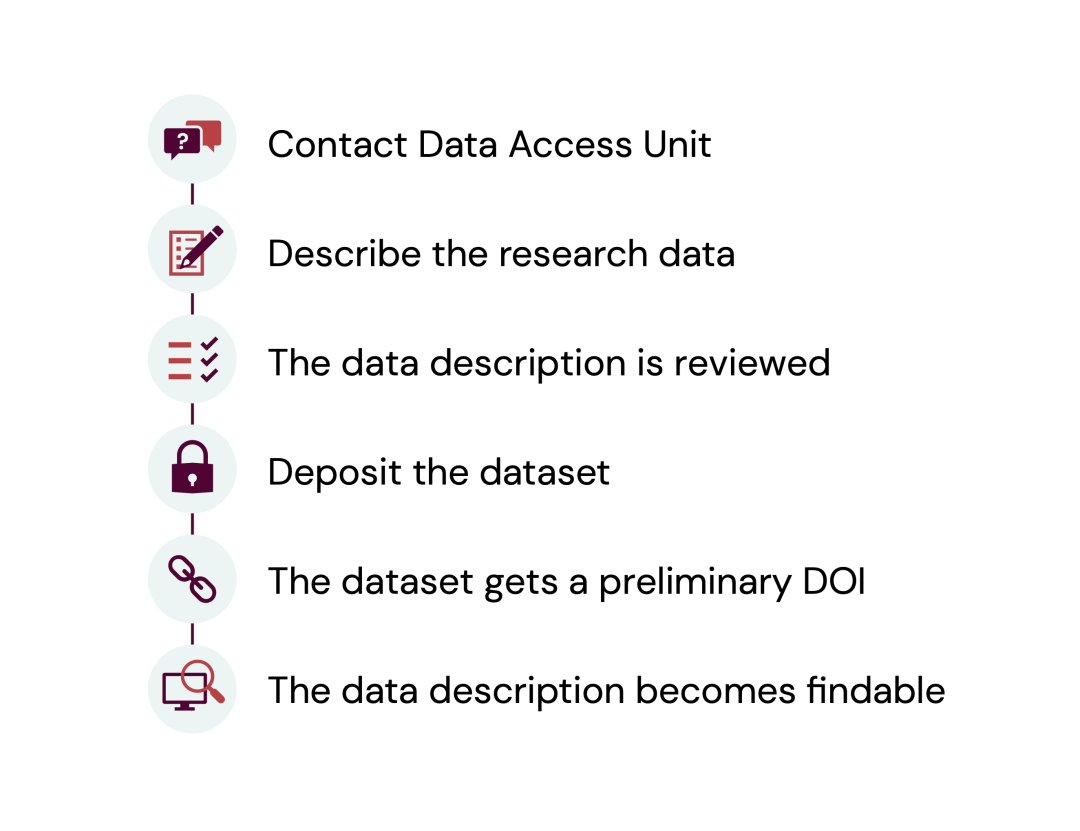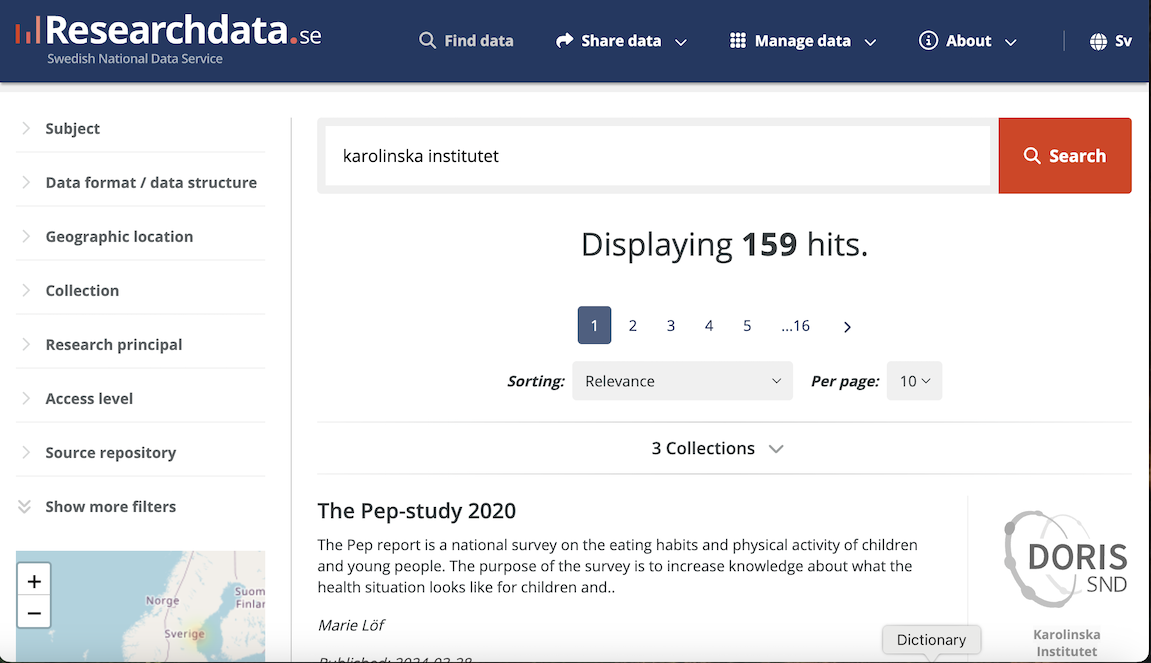KI Data Repository – publish and share research data
Do you want to publish research data? Even if your research project's data is sensitive, you can share it securely via the KI Data Repository, as long as Karolinska Institutet is the research principal (huvudman). Contact us to get started!

Contact Data Access Unit
We provide guidance for safely sharing your project's research data. Email kidr@ki.se to get started!

Step 1: Contact Data Access Unit
Since spring 2025, the KI Data Repository has been Karolinska Institutet’s official institutional data repository for depositing, sharing, and publishing research data. Here, you can securely deposit data even if the material contains sensitive information.
Before you start sharing research data via the KI Data Repository, there are several things you need to consider. The Data Access Unit at the University Library is available to support you throughout the entire process, and we recommend that you contact us at an early stage.
Data deposited in the KI Data Repository are assigned a persistent identifier in the form of a Digital Object Identifier (DOI), which is a permanent web link. DOI links are important to ensure that data can be found and cited over the long term, and they are often required by publishers when submitting journal articles. Begin your data publication already when you submit your manuscript to make sure that the data description is ready in time and that you can obtain a DOI for referencing the data in your publication.
Related information

Step 2: Describe the research data
When stored in the KI Data Repository, a description of the data becomes searchable in the Swedish National Data Service (SND) portal, Researchdata.se. SND is a national research data infrastructure operated by a consortium of Swedish universities, of which KI is one.
To deposit data in the KI Data Repository, you first create a data description in DORIS, SND’s system for describing and publishing research data. The metadata in DORIS follow standards that make the data description findable and increase the possibilities for research data to be reused.
Log in with your KI ID to describe and share your project’s dataset via DORIS. Once logged in, click “New Data Description” to begin creating a description. On SND’s website, you can find more information about how to describe and share data.

Step 3: The data description is reviewed
The description is now reviewed by staff at the Data Access Unit at KI’s University Library. You may be contacted with suggestions to improve the quality of the description (metadata).

Step 4: Deposit the dataset
In this step, you upload the dataset to the KI Data Repository, which is a local secure server at Karolinska Institutet.

Step 5: The dataset gets a preliminary DOI
Data deposited in the KI Data Repository are assigned a persistent identifier, a Digital Object Identifier (DOI). Once you have registered the data in DORIS, the dataset will be given a preliminary DOI that you can send to the publisher. You can also include the preliminary DOI in a Data Availability Statement in your manuscript and use it when citing in reference lists.

Step 6: The data description is published and becomes findable
When the data description is complete, it becomes visible and searchable via the national research data portal Researchdata.se, as well as through other services such as Google Dataset Search.
Access to the data is regulated depending on the content of the dataset. The majority of KI’s research data contain sensitive information, which means that these cannot be downloaded directly from Researchdata.se. If other researchers submit a request to access restricted data, the request will be handled by KI according to specific procedures to protect sensitive information.


Data Access Unit
The Data Access Unit at the University Library helps you making research data available and open access where applicable. We're part of Research Data Office (RDO) at KI.
If you would like us to get back to you, please submit your contact information in the form below along with your feeback.
